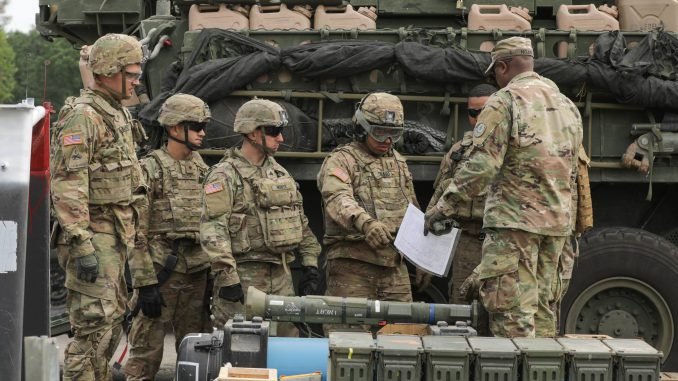
Secretary General Jens Stoltenberg spoke to reporters at the start of NATO’s summit in Brussels where the Alliance’s leaders are expected to approve the so-called Readiness Initiative to ensure that by 2020 the organization has 30 mechanized battalions, 30 air squadrons and 30 combat vessels ready to deploy within 30 days.
The leaders also plan to announce the establishment of two new commands and commit to simplifying and speeding up the procedures for the movement of forces.
“We have increased our military presence in the Baltic countries and Poland already. We have four battlegroups, one in each of the Baltic countries and one in Poland. There is also some bilateral presence of the US,” Stoltenberg said when asked by reporters about the possible permanent stationing of units in the Baltic countries and Poland.
“So this shows that NATO is adapting, NATO is responding,” he said.
“NATO deterrence and NATO defense is of course partly based on the forces we have already there — the national forces, the multinational NATO forces, but also on our ability to quickly move in more forces if needed.”
“That is exactly what we are addressing at this summit. We are increasing the readiness of our forces”.
In response to Russia’s aggressive actions in Ukraine and activity in the Baltic Sea region, NATO last year deployed a 1,000-strong multinational battalion to Lithuania, Latvia, Estonia and Poland each.
Lithuania wants NATO allies to beef up the Baltic countries’ air defense capabilities and send more warships to the Baltic Sea.
NATO’s leaders are not expected to adopt concrete decisions on new capabilities at their summit on Wednesday and Thursday, but they may instruct the Alliance’s military commander to come up with his assessments and recommendations.
US President Donald Trump planned to reiterate his call for allies to increase their defense spending. Before the start of the summit, Trump lashed out at Germany on Wednesday morning, calling it “a captive of Russia” because of its pipeline deal with Moscow.
